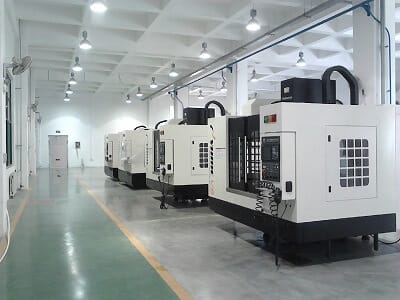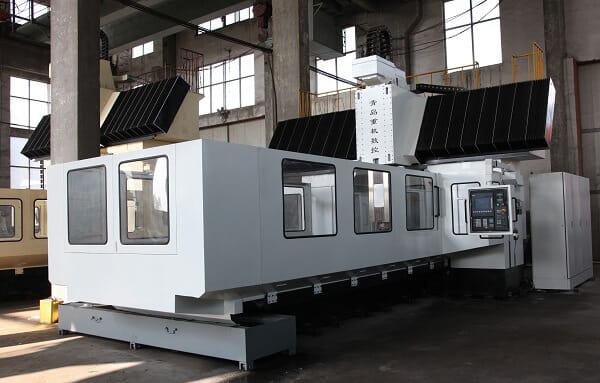Understanding the Impact of CNC Milling Machines
In today’s competitive manufacturing landscape, speed, precision, and flexibility are paramount. CNC mills have emerged as the backbone of industries that require high-precision, consistent, and cost-effective solutions. This article delves into the key advantages of CNC milling, highlighting why it has become indispensable for modern production and offering a competitive edge to manufacturers worldwide.
What Exactly is a CNC Mill?
A CNC mill refers to a machine that uses computer numerical control (CNC) to automate the milling process. Unlike traditional manual mills, which require human intervention to adjust the machine’s movements, CNC mills are programmed and controlled by computers. This enables manufacturers to create complex parts with exceptional accuracy and efficiency.
Key Advantages of CNC Milling Machines
精度和准确性
One of the most significant benefits of CNC mills is their ability to produce extremely precise and accurate components. The computer-controlled programming ensures that each part is manufactured to the exact specifications, with minimal room for error. This high level of accuracy is crucial in industries such as aerospace, automotive, and medical device manufacturing, where every millimeter counts.
Efficient Production of Complex Geometries
With the rise of CNC milling technology, manufacturers can produce intricate and complex designs that were once impossible with traditional machining methods. Whether creating a part with multiple curves, holes, or detailed patterns, CNC mills allow for easy execution of sophisticated geometries, which enhances product functionality and aesthetic appeal.
Enhanced Production Speed
In addition to precision, CNC mills are known for their ability to increase production speeds significantly. Once the machine is programmed, it can operate continuously, cutting and shaping materials at a consistent pace without requiring breaks or downtime. This level of efficiency leads to higher output and shorter lead times, making CNC milling a key factor for meeting tight production deadlines.
Superior Quality Control
The digital control of CNC mills ensures that every part produced meets the highest quality standards. The system automatically adjusts for any variations in the material or machine, maintaining consistent results. This eliminates human error, which is often a factor in manual manufacturing processes, and ensures that each part is manufactured with the utmost precision.

Minimizing Human Error
Traditional manual machining is prone to human error, whether it’s from operator fatigue or incorrect measurements. With CNC mills, these errors are minimized, as the machine follows a set program and executes tasks with precision. This means that manufacturers can rely on the machine to deliver consistent results with minimal risk of costly mistakes.
Maximizing Material Efficiency
Material waste is a significant concern for many manufacturers. CNC milling machines minimize waste by using advanced computer programs to plan cuts in the most efficient way possible. This reduces the need for excess material and cuts down on overall production costs. In industries where materials are expensive, such as aerospace, this can lead to significant savings.
Versatility in Manufacturing
CNC milling machines are incredibly versatile. They can be used for a wide range of materials, including metals, plastics, and composites, making them suitable for various industries. From small-scale custom parts to mass production, CNC mills can handle diverse manufacturing tasks, allowing companies to adapt to changing market demands with ease.
Cost-Effectiveness in the Long Run
While the initial investment in a CNC mill may be high, the long-term benefits far outweigh the costs. With faster production times, reduced waste, and fewer labor requirements, CNC milling can help companies reduce overall manufacturing costs. Over time, the efficiency gains and precision improvements will result in significant cost savings.
Global Availability and Support
As CNC milling technology continues to evolve, support for these machines has become more accessible. Manufacturers can easily find replacement parts, get technical assistance, and ensure that their machines are well-maintained. The global availability of CNC milling components and services ensures that businesses have the resources they need to keep their operations running smoothly.
The Future of CNC Milling Machines
As technology continues to advance, CNC milling machines will become even more powerful, incorporating artificial intelligence and smart automation to further improve production efficiency. The rise of Industry 4.0 and the integration of advanced sensors and data analysis into CNC mills will open up new possibilities for predictive maintenance, real-time quality control, and process optimization.
Conclusion: Unlocking the Potential of CNC Milling
The benefits of CNC mills are clear: precision, speed, versatility, and cost savings make them an invaluable tool in modern manufacturing. Whether you’re producing complex parts or high-volume components, CNC milling technology allows manufacturers to maintain high standards of quality and efficiency while reducing costs and downtime.
For businesses looking to stay ahead in their industries, investing in CNC mills is essential for future success. Embracing CNC milling technology will enable companies to meet growing demand, improve product quality, and enhance overall profitability. The future of manufacturing lies in the integration of cutting-edge technologies like CNC milling, and businesses that adopt these innovations will be better equipped to thrive in an increasingly competitive market.
